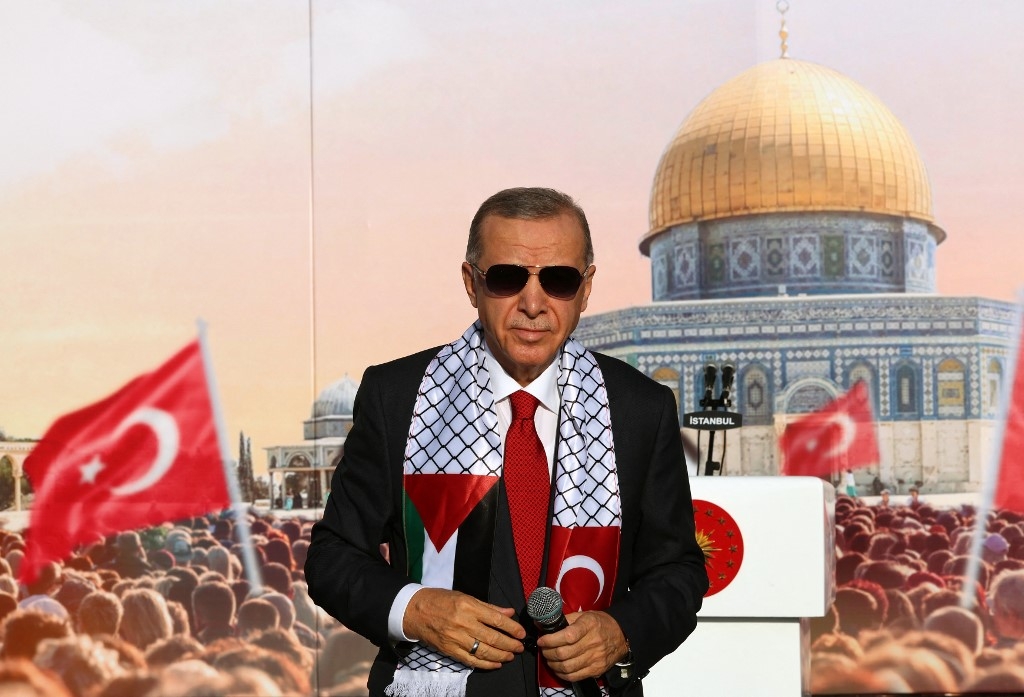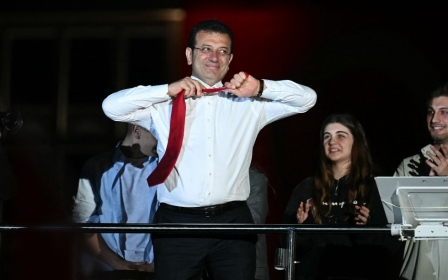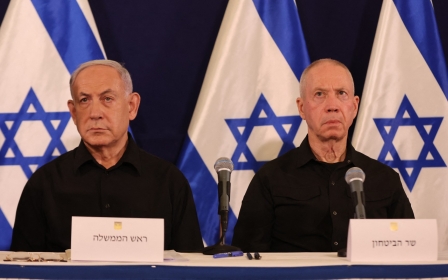War on Gaza: Turkey halts all trade with Israel over war

Turkey suspended all trade with Israel effective immediately over the humanitarian crisis it has caused in Gaza, the Turkish trade ministry announced on Thursday.
“Export and import transactions related to Israel have been stopped, covering all products,” the ministry said.
“Turkey will strictly and decisively implement these new measures until the Israeli Government allows an uninterrupted and sufficient flow of humanitarian aid to Gaza.”
Israeli Foreign Minister Israel Katz criticised the move on the social media platform X, saying that Turkish President Recep Tayyip Erdogan was behaving like “a dictator”.
Katz accused Erdogan of breaking bilateral agreements between the two countries and said the country would work to create trade alternatives with other countries.
New MEE newsletter: Jerusalem Dispatch
Sign up to get the latest insights and analysis on Israel-Palestine, alongside Turkey Unpacked and other MEE newsletters
Turkey and Israel have a free trade agreement that has been in effect since 1997. Trade volume between the two countries was $6.3bn in 2023, out of which 76 percent were Turkish exports, according to the Turkish Statistical Institute.
The trade ministry said in the same statement that they are coordinating with the Palestinian Ministry of National Economy to ensure that Palestinians who live in occupied territories such as the West Bank wouldn’t be harmed by the move. Turkey was also exporting products to Palestinian territories through Israeli customs.
Hardened stance
Since suffering significant losses in Turkey's local elections in March, the Turkish government has intensified its criticism of Israel and taken a series of steps against Prime Minister Benjamin Netanyahu's government.
The government has assessed that its comparatively more balanced policy regarding Palestine and Gaza had negatively impacted its core voters who are pious Muslims concerned about the ongoing Israeli invasion in Gaza.
The war in Gaza began on 7 October, when Hamas and other Palestinian armed groups launched a surprise attack on southern Israel, killing 1,200 people and taking at least 240 people hostage. Israel responded to the attacks with a declaration of war, launching a siege on Gaza and a devastating aerial bombing campaign that was followed by a ground invasion.
Israel's war on the enclave has killed more than 34,000 Palestinians, most of whom are women and children, levelled entire residential neighbourhoods, and targeted other civilian infrastructure including schools, hospitals, and mosques.
The Turkish government first imposed export restrictions to Israel on more than 50 products on 9 April.
The Turkish president last month publicly met Hamas leaders, including the political bureau chief Ismail Haniyeh, for the first time since the 7 October attack against Israel by the group, and dispatched his Foreign Minister Hakan Fidan to Doha to meet senior Hamas officials.
Fidan, in a separate statement earlier this week, announced that Ankara would also join South Africa’s genocide case against Israel at the International Court of Justice (ICJ).
Fidan said that Turkey has been deliberating on how to respond to Israel's actions during the war on Gaza for a while, and has already taken steps against Israel, such as restricting some exports.
“Our legal experts have been studying how to participate in the legal case against Israel at the ICJ,” Fidan said during televised remarks on Wednesday.
Turkish President Recep Tayyip Erdogan approved the officials’ plan, Fidan added, so Turkey “will legally support South Africa’s case against Israel at the ICJ, and file our application to the court soon”. Turkey aims to strengthen South Africa’s case with this step.
Nicaragua and Colombia have previously tried to intervene in the same case with separate applications, but the court has yet to make a judgment on their request.
Fidan said Turkey discussed the issue with some members of the Organisation of Islamic Cooperation, who said they are likely to also join the case.
Middle East Eye delivers independent and unrivalled coverage and analysis of the Middle East, North Africa and beyond. To learn more about republishing this content and the associated fees, please fill out this form. More about MEE can be found here.




